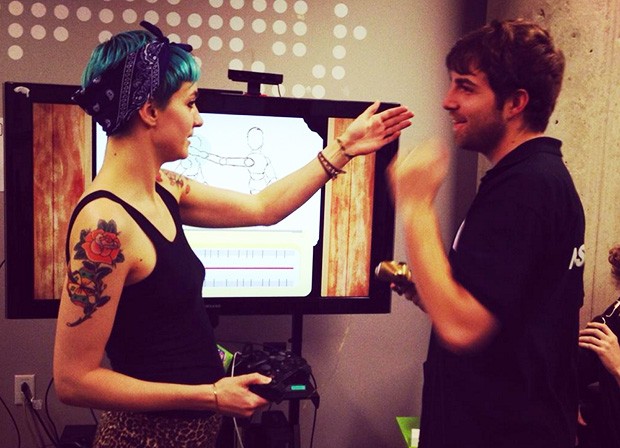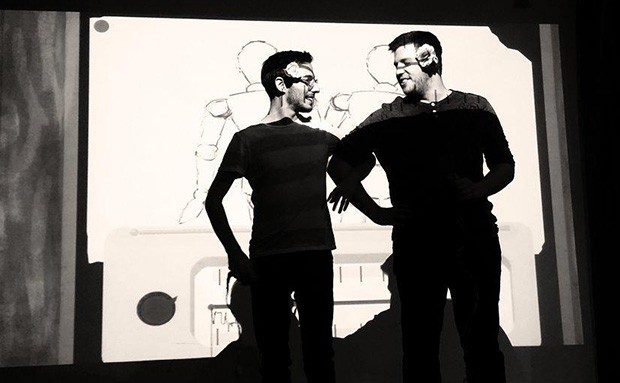A new student-powered video game about sexual consent
 In Tune involves two people exploring touch through continual communication. | Photos courtesy of Tweed Couch Games
In Tune involves two people exploring touch through continual communication. | Photos courtesy of Tweed Couch Games
The topic of consent is a hot-button issue on campuses across North America. At Concordia, workshops and information on sexual consent provide students, staff and faculty with important tools and strategies to better communicate with potential partners.
Once people are educated in sexual consent, how can they practice what they have learned, before they find themselves in a real-life situation?
Tweed Couch Games is a group of three developers — Jessica Rose Marcotte, Allison Cole and Zach Miller — from Concordia’s Technoculture Art and Games lab (TAG), and the mLab, run by Professor Mia Consalvo, the Canada Research Chair in Games Studies and Design. They recently created In Tune, a game that allows players to negotiate their own and their partner’s physical boundaries, using contact as the main controller.
The group came up with the idea during the mLab’s 2014 edition of the Boob Jam, which challenged teams to design games about breasts without the stereotypical perspective of the male gaze.
“The game involves two people exploring touch through continual communication, and is aimed at instigating meaningful conversations around consent,” explains Cole. “We want this to be a cool and positive way of exploring what is sometimes emotionally and physically tricky terrain.”
 Avatars depict poses from simple face touching to linking arms to playful headlocks.
Avatars depict poses from simple face touching to linking arms to playful headlocks.
How it works: Reenacting consent
Two people are asked to re-create the physical interactions of two non-gendered avatars that appear on a screen. The avatars depict poses from simple face touching to playful headlocks to the recreation of famous movie scenes.
During the re-creation, partners discuss how, when, and if they feel comfortable with the experience presented. They also share their comfort levels by squeezing the controller. Squeezing it more tightly indicates a higher level of discomfort while pressing down on the top of the controller indicates consent.
Players can revoke consent by no longer pressing on the top of the controller. This will give participants an audio cue that terminates physical contact but continues verbal negotiation. If a player feels unsafe they can end the game at any time.
“What’s interesting to observe is that once a dialog is established partners feel more comfortable in some of the more intimate positions,” says Marcotte. “It also demonstrates that saying yes to a certain pose at one point is not necessarily always a yes, and vice-versa.”
The Tweed Couch team has showcased In Tune at the Mont Royal Game Society, Salon Ludique and IndieCade East. They would eventually like to see the game used as an educational tool in classroom settings and consent workshops.
Watch the In Tune trailer:

